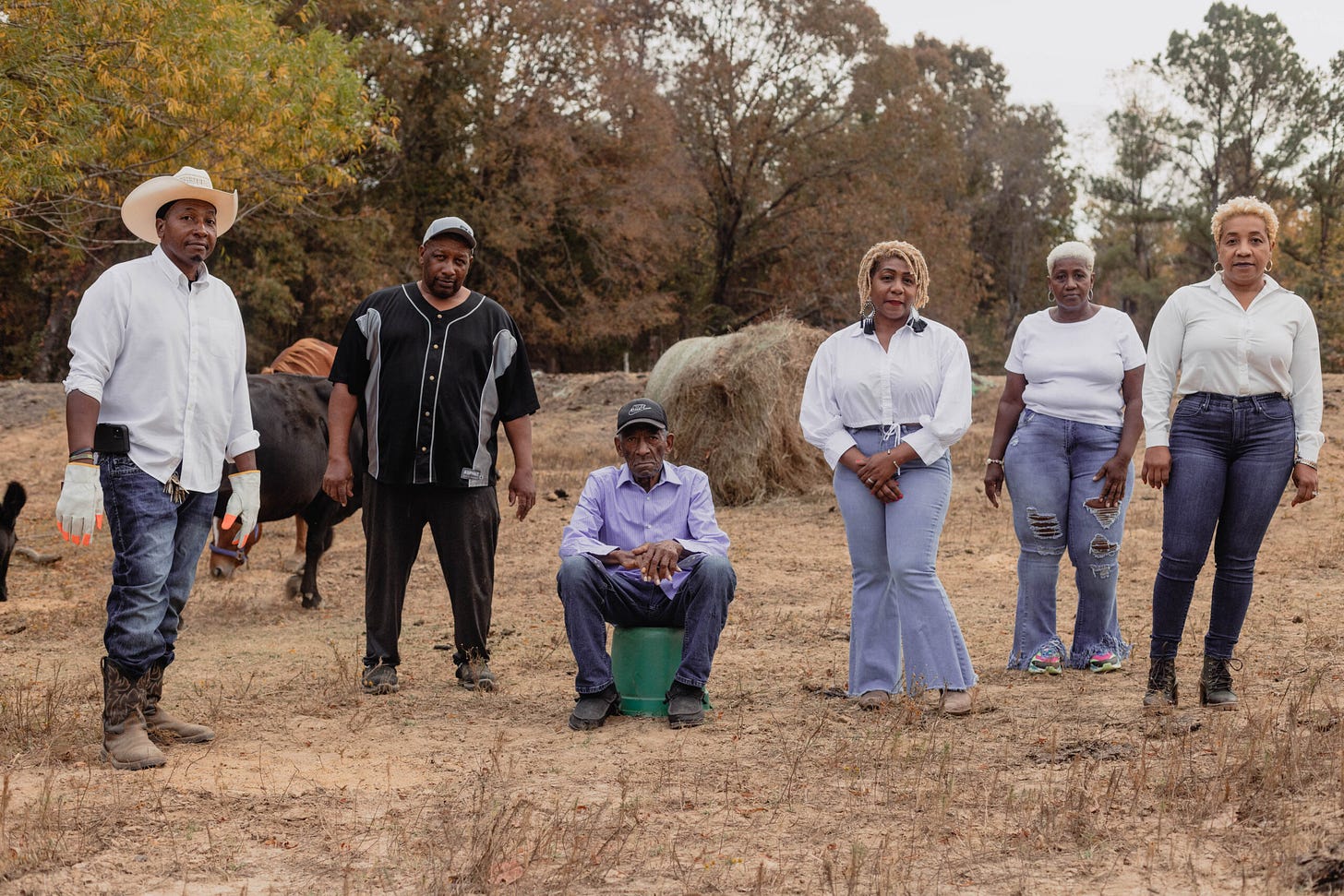Historic federal aid addresses discrimination for thousands of Black farmers after years of delay
The U.S. Department of Agriculture has sent out long-awaited payments to minority farmers and others in need of aid. But some say it’s not enough.

The U.S. Department of Agriculture has sent out long-awaited payments to minority farmers and others in need of aid, including 1,265 farmers from Louisiana. But some say it’s not enough to offset years of discrimination.
The department issued more than $2.2 billion in payments to more than 43,000 farmers across the country in the last week of July, with much of that money going to farmers in the Mississippi River delta states. That includes 13,000 in Mississippi, and 11,000 in Alabama.
Charlene Johnson Gatson’s family farms beef cattle near Lexington, Mississippi and applied for the program, called the Discrimination Financial Assistance Program. She said they have faced decades of discrimination.
“I am excited about this money being disbursed. I’m thankful for the people who already received these settlements and I’m waiting on ours,” said Johnson, who said she has yet to receive an official letter from the USDA.
“It would mean justice for my family,” she said.
Listen to this story from WWNO-FM.
The money aims to address a history of discriminatory lending practices by the USDA against Black and other minority farmers. A study shows that over the 20th century, Black farmers lost over $320 billion in land, partly due to that discrimination.
USDA Secretary Tom Vilsack said the Biden Administration hopes the money will help thousands stay on the farm.
“This financial assistance is not compensation for anyone’s loss or the pain endured, but it is an acknowledgement by the department,” he said at a White House press briefing on July 31.

Farmers have been waiting on this kind of money for years. An initial round of payments stalled after white farmers and banks sued over the first version of the program in the 2021 American Rescue Plan Act. The plan had a provision that set aside $4 billion for socially disadvantaged farmers, meaning those who had faced racial or ethnic discrimination.
A provision in the Inflation Reduction Act of 2022 repealed that debt relief and replaced it with $3.1 billion for economically distressed farmers. Most of that money has already been doled out, Vilsack said.
The other component was the $2.2 billion for farmers who faced any type of discrimination by the USDA before 2021, not just racial. Black and brown farmers who were already expecting aid money had to fill out a new application and explain how they faced discriminated. That led some of them to sue the USDA.
Angie Provost and her husband June, who farm sugar cane in Louisiana’s Iberia Parish, helped push for the original legislation as they struggled to get loans in the past – due, they said, to discrimination from their local USDA offices.
“As [June] took over the farm, there have been numerous hurdles for him to cross that sort of harken back to the days of Jim Crow contract leasing and indentured servitude,” Angie Provost said.
Provost and her husband are also suing the USDA separately. She said USDA could have made the application process easier and less stressful for them.
Many farmers in Louisiana had trouble with the long application and with gathering proof they had been discriminated against, according to Ebony Woodruff, director of the Southern University Law Center Agricultural Law Institute for Underserved and Underrepresented Communities.
“Remember, a lot of this stuff happened decades ago, and in a place like Louisiana, we have hurricanes coming through, houses are destroyed, people didn’t have the paperwork to supplement their applications,” she said.

The USDA said it has tried to make it easier for farmers to get records from the agency to help them get proof.
“The problem is now that you have put the burden back on the farmer to prove the discrimination,” said Woodruff.
Monica Rainge, USDA Deputy Assistant Secretary for Civil Rights, said the question of discrimination on the application was left open-ended on purpose.
“This was not an adversarial thing,” said Rainge. “It was really up to the producer to tell his or her own story about how they experienced discrimination.”
Now that the funding has gone out, Woodruff said the USDA should keep trying to fix equity issues affecting Black farmers. She wants to see more transparency from the agency, and for those who discriminated against loan applicants to be removed from those positions.
“The discrimination that’s happening in these local county committee offices is still occurring in 2024,” she said.
She added that her institute has lobbied the USDA to make its loans process easier for producers. Rainge said the USDA shortened the application from 29 pages to 13 and has also invested in more assistance for producers interacting with their local USDA offices.
“This program is a one-time payment, and we recognize that further investment will be needed to continue to level the playing field for farmers,” Rainge said.
This story was originally published in the Louisiana Illuminator.
Tegan Wendland contributed to this story, which is a product of the Mississippi River Basin Ag & Water Desk, an independent reporting network based at the University of Missouri in partnership with Report for America, with major funding from the Walton Family Foundation.
